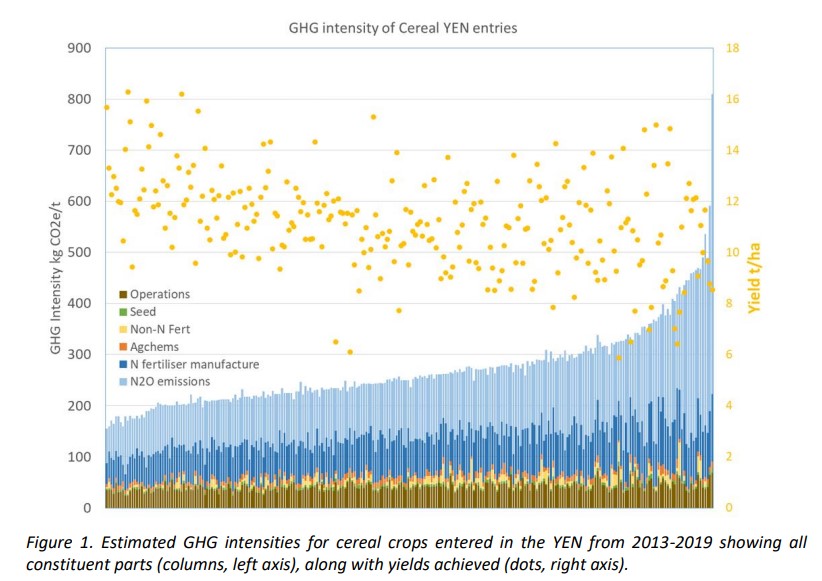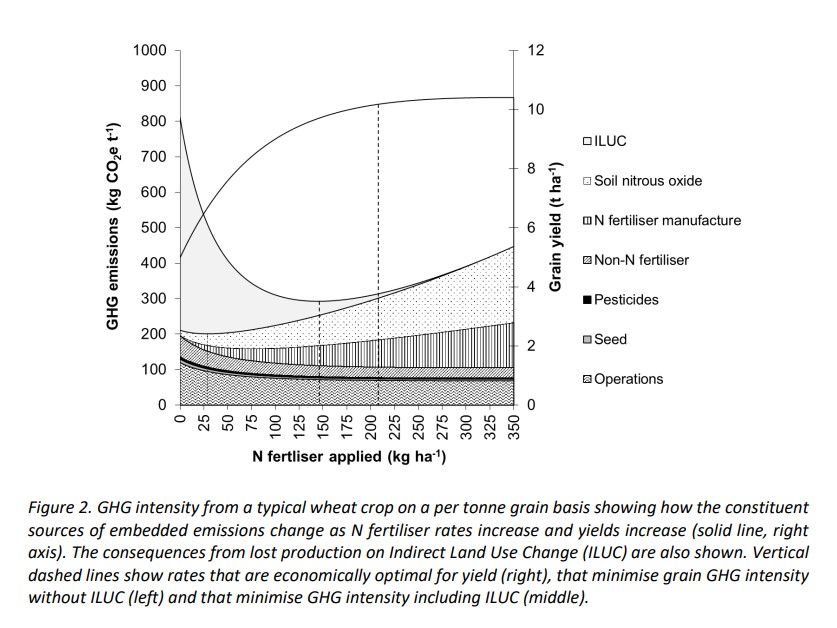

What can we do to increase sustainability of mineral fertilisers?
- Close the loop - minimise losses on-farm - making most of manures
- Reduce demands by the crop & end users?
- circular economy with all stakeholders
- Plant Genetics
- Improved efficiency & sustainability of fertiliser products
- Green ammonia
- Fertiberia
- Yara
- Lower GHG footprint products - carbon footprinting of all fertiliser products
- ammonium sulphate lower emissions?
- LithAN 3.4 kg CO2e/kg N
- PolAN 3.2 kg CO2e/kg N
- recycled nutrients from waste processes - eg TraceGrow
- Mineral fertilisers from organic materials
- Bio-based fertilisers - FertIberia.. B-Ferst
- Organo-mineral fertilisers
- eg digestates - Bertels
- N2 Applied
- struvite from water treatment
- organic vs mineral - when does a product produced from an organic feedstock become mineral?
- less than 1% organic carbon in product?
- certified 'organic' vs organic in chemical sense
- Green ammonia
- Enhanced efficiency products & formulations
- coatings
- Nitrification inhibitors
- biostimulants
- soil conditioners
- Fertiliser choice - informing farmers and consumers
- Better determining how much nutrients to apply, what when & where?
- Testing soils, plant & grain
- Sensing and rapid diagnostics?
- Experimenting on-farm
- Food system & what the consumer wants
- Food supply chain driving
- but consumers more worried about pesticides rather than fertilisers
- on food labels in future?
- Policy - Green Deal and Farm to Fork
- Soil Health
- Precision farming & variable rate applications (less easy with organic manures)




